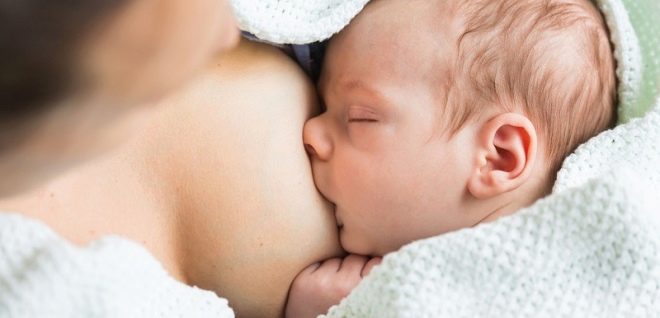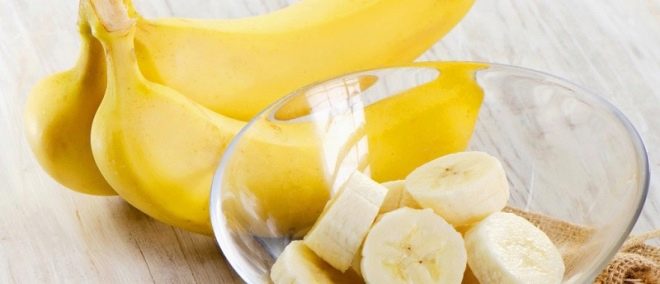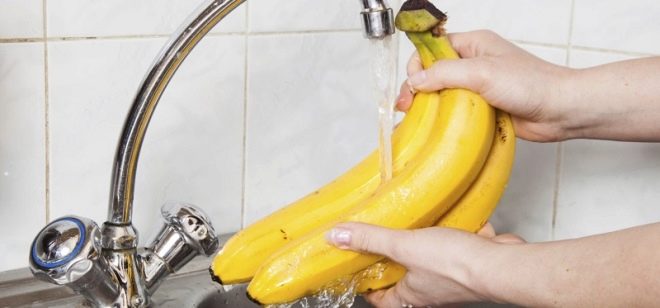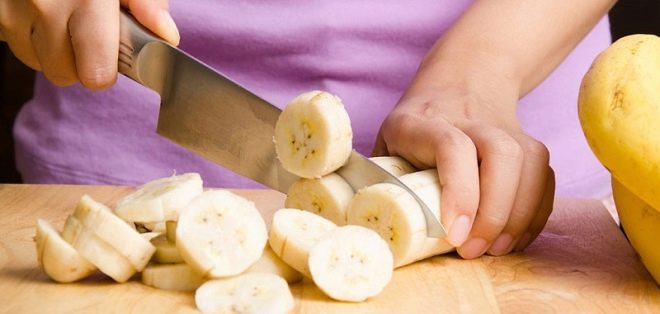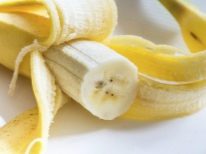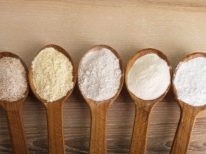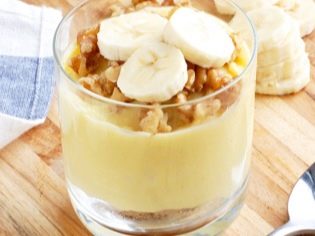Breastfeeding bananas
Breastfeeding is a difficult period in a woman's life when you want something tasty and healthy, but you need to choose the menu as more carefully, because its components can get into breast milk and provoke a completely unpredictable effect on the baby. For this reason, most products are not recommended for moms, however, bananas, it would seem, should carry only benefits. Is it really so - see below.
Benefit and harm
When breastfeeding, the female body needs more nutrients than usual, especially since there are no other sources of beneficial vitamins and trace elements for the newborn. A banana, like any other fruit, is good for the body, and it is usually not only not prohibited by nursing mothers, but even recommended. This product is available year-round, and is especially appreciated for the content of the following components.
- Tryptophan. This substance is very effective against stress, which necessarily accompany motherhood, even if the child is the main dream of all life. Moreover, stress is experienced not only by the mother, but also by the child - it is hard for him to get used to the new conditions of life, whereas tryptophan helps to regulate sleep and recover faster after a hard day. This component also increases the ability to work, because the mother can cope with all the tasks without problems.
- Pectin. Without this component, the metabolism in the body will take place much more slowly - it is responsible for the proper functioning of the intestines and the delivery of everything useful through the vessels to the organs.
- Cellulose. This component is unlikely to get into the milk, but it is useful for the mother herself, eliminating the body from toxins, including those of hormonal origin. Fiber in general improves digestive processes, which is useful not only for young mothers, but also for any person in general.
- Vitamins (mainly C and E). The mother's body is weakened by the recent pregnancy, and the child so far cannot boast of a terrific immunity, so vitamin C is an indispensable ingredient without which the smallest infection could become a real health hazard. Vitamin E is considered indispensable for beauty, because many people call it more useful for the self-conceit of the mother, but it is also desirable for the baby to have healthy skin, hair and nails. Other vitamins that are present in bananas are responsible for concentration and memory, and yet these qualities are extremely important now for the mental development of children.
- Trace elements (mainly calcium and iron, phosphorus and magnesium). From the presented components can be extracted a lot of benefits - for example, calcium is needed for strong bones, and magnesium - for the stable operation of the heart. Trace elements are a building material for the body, they are needed by both the mother for recovery, and the child for the proper formation of high-grade tissues.
In the end, during lactation, bananas are good because you just want to treat yourself to something tasty, and this option is very simple (usually does not even require cooking) and is quite affordable, and also allows for a variety of menus thanks to the existing methods of cooking.
As for the harm, in general, bananas are not considered a dangerous product for young mothers, but there are also groups at risk.Because of its sweetness, this fruit is not allowed for regular use by diabetics and people with overweight, because of its ease, the product is undesirable for patients with high acidity of the stomach, thrombophlebitis and problems with veins also make you think about the feasibility of such a menu. None of these diagnoses means that bananas should not be eaten at all, just before including them in the diet, it is advisable to ask the doctor how justified this is.
The rest of the bananas moms are allowed. It should also be noted that this product is often blamed for a specific effect on the body, which can manifest itself differently in each person - for example, some bananas can cause constipation, while for others they give a completely opposite effect. It is difficult to predict this development, but if you have previously consumed this fruit without any side effects even during the pregnancy, then there should be no surprises.
Features of product selection
Bananas can be consumed in different forms - most people simply eat these fruits fresh, but of them you can also make a salad with cottage cheese, sour cream or cream, smoothies or mashed potatoes without cooking. The product can be fried or stewed as the main ingredient of the dish, at the same time it is an excellent addition for baking - various casseroles, muffins and cookies. None of the ways to eat bananas is contraindicated for nursing women, but it should be remembered that baked fruits will surely lose some of their benefits. Heat treatment will surely destroy some of the healthy, because stewed, baked or fried bananas are more tasty than useful.
In this context, it is much more important to choose fresh fruit correctly, especially since it is in this form that they are most often consumed. Global research on this subject has never been done, but some experts from their own observations claim that it is ripe fruits that more provoke constipation, whereas unripe ones cause meteorism and general digestive disorders.
Accordingly, the correct choice of bananas can both help solve the problem, and further aggravate it. Determining the purchase of certain fruits, the mother should always remember that the effect almost always applies to the child, because by curing her problem, she can create the opposite problem for the baby.
Do not forget that you can get poisoned with bananas, like any other fruit, especially since most consumers never wash their bananas. In fact, experts advise not only to clean this fruit, but also to wash it, but not in any water, but only in hot water. Of course, this procedure will not help too much if the fruit is chosen slightly spoiled. If after the use of such a food, the mother showed the first signs of poisoning, it is necessary to take measures regarding not only herself but also about the child - he probably also received infection with milk. Fruits with damaged skin or a torn off tail are not worth buying at all - you cannot be sure that there were no bacteria in them.
Enter into the diet
Banana intolerance is a very rare phenomenon, and it is unlikely to be diagnosed at the breastfeeding stage, so a woman can consume this fruit, unless the signs of rejection are too obvious. However, such a diagnosis in special cases is also possible, and then the baby will probably never be able to eat this fruit. Anyway, a nursing mother should not be subjected to children's body's regular tests - if the characteristic signs of allergy are found, and all traces indicate exactly the banana introduced into the diet, you should wait at least several weeks before trying again.
By the way, for all the alleged safety of bananas during HB, mothers should not be in a hurry with introducing this fruit into their own diet.This product has too many calories and sugar, and its components that fall into the children's stomach along with breast milk can easily provoke colic or start the fermentation process with all the consequences. For this reason, neither in the first week, nor even in the first month such an additive is introduced into the diet. You can return your favorite treat to your own diet in the second month, but a mother cannot be initially and one hundred percent sure that such an ingredient will be perceived by a child's body without deviations.
For this reason, with a banana, they act in the same way as with all other products at the time of their first intake - at first they eat only a small piece and observe for a few hours both their own reaction and the child’s behavior.
If nothing has changed for the worse, the piece can be enlarged by continuing to monitor the condition of the baby. Under favorable circumstances, over time, you can eat this fruit daily, and the amount is determined by the chosen diet or well-being, so that both of them do not become worse. If we talk about the bar set by the doctors, they usually consider two bananas a day to be the absolute ceiling for the breastfeeding period, and even for most women this will be a bit much.
Of course, it is also necessary to correctly determine whether a child has become worse from bananas. To begin with, it should be remembered that the introduction of all new ingredients occurs gradually - one at a time, otherwise it will be very difficult to determine what caused the deterioration of the condition. Entering a banana in your own diet for the first time after giving birth, make sure that there is nothing on the menu that you would not eat before without any consequences for your baby’s health.
It is worth paying attention to exactly how deterioration manifests itself. So, skin rashes and redness without being tied to a specific part of the body is a clear sign of an allergy, and not from outside contact, but any abnormalities in the bowels - a hint of food poisoning. Such manifestations are certainly unpleasant for a child, because he will additionally warn an inattentive mom with other characteristic signs, such as a disordered sleep or heightened moodiness.
Theoretically, any of these symptoms in itself may indicate that bananas are not accepted and you should not rush with them yet, but this is not accurate, but if all the symptoms are observed at once, you will have to exclude this fruit from your mother’s menu.
Physician advice
Choosing bananas right is only halfway to success, because you also need to eat them properly. There is nothing difficult here, but ignorance of the elementary rules can lead to the fact that the child will manifest negative consequences that could be avoided. Here are some simple tips that nutritionists give to all lactating mothers who want to return these fruits to their daily diet.
- Various active ingredients from bananas do not accumulate in the child’s body, but can lead to an overdose with abundant one-time use, therefore eating them is better one at a time than two, but every other day.
- Banana intolerance is usually a reaction to just one of its constituents, starch, and therefore it is possible to check whether this fruit caused the deterioration of the condition by using any other product with a high starch content.
- Being a new product on the menu, a banana, even processed into breast milk, still provokes a certain reaction from the child’s body, but it doesn’t always indicate something bad - for example, darkening a child’s chair after eating mom fruit is not a pathology per se and does not indicate its presence.
- If the reaction of the baby after the use of bananas by the mother is obvious, but there is no clear certainty that this fruit was the cause, experts advise waiting for at least three days before conducting a repeat experiment.
- Even the fact that during pregnancy a woman regularly consumed this fruit without harming her own health does not mean that during feeding a banana will not have a negative effect on the child.However, if the banana was not the main part of the mom's menu before, and only now she felt the desire to eat it regularly, even greater caution should be exercised - in such a situation, the product under consideration for the baby is unusual with one hundred percent accuracy.
In general, the recommendations of all experts, without exception, boil down to the fact that a banana is more useful food than harmful, because it can and should be tried. Another thing is that slowness in increasing the dosage and careful monitoring of the reaction of the child’s body (and its own, too) is mandatory at this stage.
Reviews
In most cases, comments on lactating mothers on specialized maternity websites describe bananas on the good side. Women really appreciate the opportunity to eat properly, getting a full range of vitamins and minerals, because the fair sex should remain beautiful and healthy even after the birth of a child. They note that this fruit, introduced into the diet, copes well with the task, especially since it can be eaten daily, and in modern supermarkets it is sold year-round.
Separately appreciated is that a banana is not only useful, but also tasty. Modern women often go on diets that prohibit the use of most of their favorite foods, and pregnancy and breastfeeding can further cut the list of available food. In such circumstances, bananas, which are an excellent dessert and not contraindicated for use, are for many a real salvation. Bananas alone, of course, will not be full, and everyday use could provoke satiety of these fruits, but numerous recipes for making banana desserts come to the rescue, which no one has ever thought of before.
Of course, negative reviews also come across, but such that bananas are completely banned on the recommendation of the doctor, almost never occurs. Adverse effects are either temporary, when the child just needs to be given time to get a little stronger and accustomed to the new food of the mother, or triggered by improper use of the product - in particular, a one-time overdose.
The fact that it is traditionally not customary to wash bananas in our country is often affected, and even the missing tail for many is not a reason to choose another fruit or at least think about washing it. In such cases, the negative experience of the use of bananas by the mother remains a single case, and subsequent attempts to introduce into the diet, as a rule, already end in success.
For information on what fruits can be nursing mom, see the following video.

